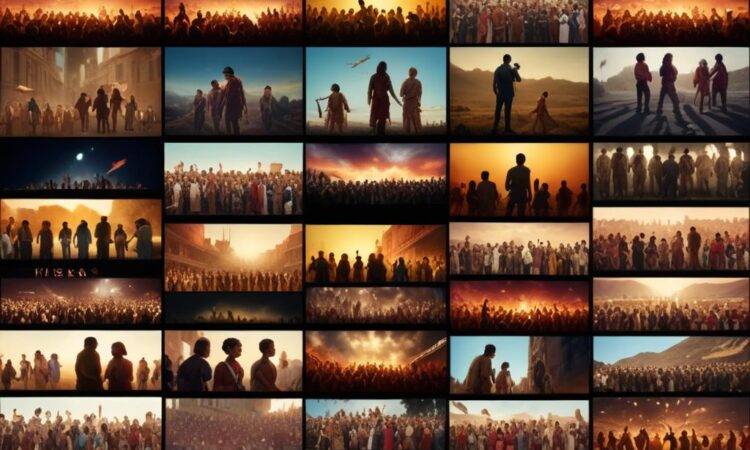The Power of Film as a Social Commentary
Film has long been a powerful medium for storytelling and entertainment, but in recent years, it has increasingly become a platform for social and political commentary. Directors, writers, and actors are using their creative voices to address pressing concerns, spark dialogue, and raise awareness about important issues.
The Rise of Socially Conscious Cinema
The rise of socially conscious cinema can be attributed to several factors. Firstly, audiences are increasingly demanding films that reflect the complexities of the world around them. They want to see stories that challenge their perspectives and provoke thought. Secondly, the rise of social media has amplified the voices of marginalized communities and made it easier for filmmakers to reach diverse audiences.
This shift in the film industry has led to a surge in films that explore themes of race, gender, sexuality, class, and political corruption. These films are not simply trying to entertain; they are trying to educate, inspire, and create change.
Examples of Social Commentary in Film
Here are some examples of films that have made a significant impact as social commentary:
- Parasite (2019): This South Korean film tackles the themes of class inequality and social mobility. It won the Academy Award for Best Picture, becoming the first non-English-language film to do so.
- Get Out (2017): This horror film explores the issues of racism and white privilege in a chilling and thought-provoking way.
- Moonlight (2016): This coming-of-age story explores the themes of race, sexuality, and identity. It won the Academy Award for Best Picture.
- The Handmaid’s Tale (2017): This dystopian drama series, based on the novel by Margaret Atwood, explores the dangers of political extremism and the suppression of women’s rights.
- 13th (2016): This documentary by Ava DuVernay examines the history of racial inequality in the United States and the role of mass incarceration.
The Impact of Social Commentary Films
Social commentary films can have a profound impact on society. They can:
- Raise awareness about important social issues.
- Promote empathy and understanding for marginalized groups.
- Spark dialogue and debate about controversial topics.
- Inspire action and change.
For example, the film Selma (2014) about the Selma to Montgomery voting rights marches, helped to reignite the debate about voting rights and racial equality in the United States.
The Future of Film as Social Commentary
As the world continues to face complex challenges, film will undoubtedly continue to play a vital role in shaping public discourse and promoting social change. Filmmakers are increasingly finding new ways to use their art to address pressing concerns and connect with audiences on a deeper level.
From documentaries to fictional narratives, film has the power to inspire, educate, and challenge us. By engaging with films that offer social commentary, we can broaden our understanding of the world around us and become more engaged citizens.
The future of film as social commentary is bright, and we can expect to see even more powerful and impactful films in the years to come.
Conclusion
Film has become a powerful force for social change. By using their creative talents to address pressing concerns, filmmakers are sparking dialogue, raising awareness, and inspiring action. As we move forward, it is important to continue to support films that offer social commentary and engage with these films in a thoughtful and critical manner.

